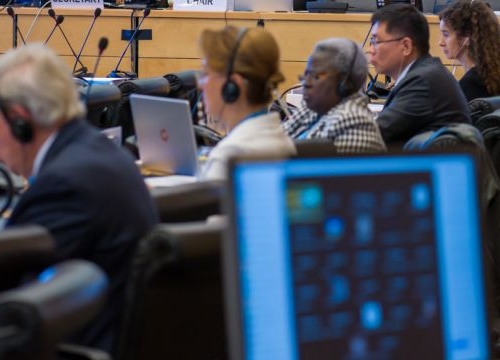Transparency in nominations and elections to UN Human Rights Treaty Bodies: Towards a New Vetting System?
Event


CCPR Centre
Online: 17:00–18:15 Geneva time (CET), 11:00–12:15 New York time (EST)
The states parties to the various international human rights treaties nominate and elect treaty body (TB) members from among their nationals. The nominations are compiled by the UN Secretary-General who submits them for consideration to all the states parties to a specific treaty.
In accordance with General Assembly resolution 68/268 (paragraph 13), when nominating independent experts for committee elections, States are encouraged to give due consideration to:
- Equitable geographical distribution
- The representation of different forms of civilization and the principal legal systems
- Balanced gender representation;
- The participation of experts with disabilities.
The resolution also reaffirms the importance of the independence and impartiality of members of the human rights treaty bodies (paragraph 35). All elected members serve in their personal capacity. Underlining the need for independence and impartiality, but also qualification of members, in June 2012, the UN TB Chairs discussed and endorsed the Addis Ababa Guidelines on the independence and impartiality of members of UN TBs.
This discussion – co-organized by our Geneva Human Rights Platform with GQUAL, TB-Net, the International Service for Human Rights, the International Disability Alliance and the Permanent Missions of Mexico and Switzerland to the UN in Geneva – will look into election processes for UN TBs, the concrete impact of Feminist Foreign Policy on the nomination and election of TB members, what can we learn from fellow international mechanisms, as well as the inclusion of a vetting process for TBs.
Opening
- Ambassador Joel Hernández, Vice-Minister for Multilateral Affairs and Human Rights of Mexico
Moderation
- Felix Kirchmeier, Executive Director, Geneva Human Rights Platform
Panelists
- H.E. Jürg Lauber, Ambassador and Permanent Representative of Switzerland to the UN in Geneva
- Milica Kolaković Bojović, Member of the Advisory Committee on nominations of judges of the International Criminal Court and Vice-President of the UN Committee on Enforced Disappearances
- H.E. Robert Rae, Ambassador and Permanent Representative of Canada to the United Nations in New York
- Claudia Martin, Independent Panel for the Election of Inter-American Commissioners and Judges, founding member of GQUAL, and Co-Director, Academy on Human Rights and Humanitarian Law
Get Ready: Relevant Links









